I enjoyed the hell out of last Saturday night’s episode, and I’d like to thank everyone who had a hand in it. If you missed the live broadcast, and you’d like to check it out, you can either download the podcast by way of iTunes or stream it on Soundcloud. Or, if you want, you can just scroll down to end of this post, where you’ll find it embedded. Following are a couple of photos, courtesy of AM 1700 staff historian Kate de Fuccio, along with a few brief notes. Hopefully, when taken together, they’ll give you a pretty good sense of what we covered during this, our 20th broadcast from downtown Ypsilanti… But really, though, you should just listen.
Our first guest was Keta Cowan, the head of Synod Community Services, who came in to talk about the work being done through the Washtenaw ID Project to make government-issued photo identification available to all residents of Washtenaw County regardless of their immigration status, whether they might be homeless, etc., thereby allowing them to do things that many of us take for granted, like check out books from the local library, or open a bank account. Now, just two weeks week since the official launch of the initiative, Cowan told us that 435 IDs had already been issued, far exceeding their expectations. [The County had estimated that they would issue a total of 500 the first year.]
Cowan and I talked about the impetus behind the initiative, the hard-fought campaign to make it a reality, and the work now being done to convince local banks to accept the Washtenaw ID as a primary form of identification. We talked about how critical it is that people be treated with dignity, and made to feel as though they are valued members of our community, regardless of their visa status. We talked about the fact that, to date, there has been no significant pushback against the initiative, and how, to some extent, that can be attributed to the work done by the likes of of Synod, the Washtenaw Interfaith Coalition for Immigrant Rights, the Shelter Association of Washtenaw County, the Washtenaw County Board of Commissioners and the Washtenaw Country Sheriff’s Department to take their time and build a strong coalition over three year’s time. And we discussed what the next steps might be, now that we’ve successfully become the first county in the country to successfully offer an ID.
Here’s Cowan explaining that the new ID isn’t just for undocumented workers, but for anyone in the community. [According to a study done recently in New York, 11% of people in the United States with lawful visa status still do not have valid identification for any number of reasons.]
[The Washtenaw ID is available to all citizens of Washtenaw County who can demonstrate residence by providing multiple forms of documentation, each of which is assigned a certain number of points. The objective is to accumulate 300 points, at which time you can purchase an ID for $25. Individuals who agree to take a short survey, however, are refunded $10 immediately. Financial aid is also available for those who cannot afford the $15 cost thanks for a grant from the Ann Arbor Awesome Foundation.]
At the 32-minute mark, we played a new song from Dr. Peter Larson, our only listener in Kenya. This week’s song, if I’m mistaken, is an electric version of an acoustic song Dr. Larson submitted earlier this year called Starin’ out the Window. I believe this version was recorded in a studio somewhere in Japan.
At the 35-minute mark, we welcomed Michael Jackman into the studio. Jackman, the longest serving member of the Detroit Metro Times editorial staff, came in to talk about his favorite Hamtramck bars, his history as a founding member of the Underground Literary Alliance (ULA), and the recent death of Detroit radio host Alan Almond, among other things.
We started with a discussion of his early life in Detroit, drawing comics for the zine Beef Rag at 15, and helping produce punk segments for the syndicated music program Back Porch Video.
Here’s Jackman telling us how, after graduating from high school, he made the decision to leave Michigan and head to New York, where he fell in with a bunch of other literary lowlifes more interested in living interesting, authentic lives than kissing ass, and created the ULA, an organization dedicated to subverting the literary status quo. [A 2001 Village Voice article about the ULA describes Jackman as “a reluctant hipster (lives in Williamsburg, yet professes nerdiness).” It would take a bit of research, but I’m wondering if it might be possible that that Jackman was the first person identified as a Williamsburg hipster by the Village Voice.]
[The first wave of Brooklyn hipsters, says Jackman, lived cheap because they didn’t have money. Those who followed them, though, just adopted the aesthetic as a lifestyle.]
We talked about Jackman’s travel zine Inspector 18, and the role he played at Zine World, the zine review magazine launched by Pathetic Life publisher Doug Holland in the wake of the announcement that Factsheet Five planned to cease operation. We talked at length about Holland and what we both knew of the man, who, despite his relatively high profile within the world of the underground press, somehow successfully managed to keep his true identity a secret. Jackman and I talked about the possibility of a documentary about the man we knew as Doug Holland, the efforts he took to keep his true identity a secret, and his abrupt disappearance from the world he inhabited. [Jackman joined Zine World in 1996, and took over as the magazine’s news editor in 1997.]
Through the ULA, Jackman and his associates drew attention to what they saw as the hollow, inauthentic work of celebrated writers like Rick Moody and Dave Eggers. They disrupted their readings. They called out the foundations that funded them. They made demands. “Put populists on funding panels,” they said. “Publish about real life; support our starving real writers; admit that today’s system ruins art.” [Jackman would tell us that Moody lives on a private island off the coast of Connecticut.]
So, we talked about the war that had been waged by the ULA, and what members of the group had thought about the fact that McSweeney’s – the journal published by Dave Eggars – had received a “best zine” award. “Dave Eggers and his little publishing empire pretend to offer an alternative,” Jackman said at the time, “but what they really offer is the same old literary insiders repackaged as outsiders. It’s mostly irrelevance and irreverence with some of the trappings of zine style.”
We talked a lot about authenticity.
Speaking of having lived a full and authentic life, Jackman told us about how he was kicked out of the Army for refusing to get out of his pajamas and comply with orders. If it had happened during war time, he was told, he could have been shot. As it wasn’t during war time, though, he was put on a bus back to Detroit. We also talked about his dropping out of film school, and the film school loans which he’s still paying 22 years later. That, he said, was the true education.
And we talked about recently deceased Detroit DJ Alan Almond and the surreal, sexy jazz patter he churned out nightly on his program Pillow Talk. Jackman, who had called into the show and talked with Almond as a 12 year old, even did an impression for us.
[If you still want more Jackman, check out The Block that Blight Forgot and River of Release in the Detroit Metro Times. The first is a story about one man’s crusade to save his block of Detroit from the fate of those around it. The second is about those people who, every year, choose to end their lives in the Detroit River.]
At 1:20, local historian Matt Siegfried , joined up to pick up the People’s History of Ypsilanti where we left off during his last visit, at the beginning of the 1850s. We discussed the Fugitive Slave Act, the growth of Ypsilanti’s black population, and the way the underground railroad actually worked in practice. [There weren’t fixed routes. It was more a network of sympathetic individuals who assisted as necessary.] Here’s Matt telling us the story of Isaac Berry, a runaway slave on his way to the Canadian border, who had the good fortune to encounter Ypsilanti’s black population, who gave him money, outfitted him with carpet slippers, and told him how to get across the border.
And, of course, we talked about recent events in South Carolina and fact that the Confederate flag still flies over their statehouse. [Siegfried wanted everyone to consider the fact that the stain of slavery goes deeper than just the Confederate flag. As he said, slavery is part of our landscape. Our streets are named after slaveholders.]
At 1:36, I ask our engineer, Brian Robb, to play a song by the group Television. He told me that he would, and then, in a blatant display of disrespect, he played the Pixies instead. [If this had happened during war time, by the way, he could have been killed.]
At 1:39, Jim Roll, the owner of Backseat Productions, came in to talk about the current state of the music business, his love of bicycles and lycra, and his thoughts about Fathers Day. We talked about his early years as a celebrated quarterback in Chicago, and how, after signing on to play in college, he decided that he didn’t want to do it. Here’s Roll telling us how he didn’t go to a single football practice after having been recruited by a Chicago college.
We marked the fifth anniversary of the closing of the Elbow Room with a beer, and discussed the pros and cons of no longer having a formal space dedicated to live music. [Jim persuaded me that house shows are more important to a scene than a dedicated, for-profit bar.] And we talked about the fact that, several years ago, he collaborated with a few of the men singled out by the ULA as enemies of meaningful literature. [He worked on a record with Rick Moody and Dennis Johnson and released it through McSweeney’s.] He even played a song that he wrote with Dennis Johnson. [Thankfully Jackman was out of the studio by then.] Oh, and we also talked about his irrational dislike of Donald Sutherland.
AND NOW YOU CAN LISTEN TO THE WHOLE LOVELY MESS YOURSELF:
Thanks, as always, to AM 1700 for hosting the show, Brian Robb for running the board and keeping the bills paid, and Kate de Fuccio for documenting everything that happens. [All the photos above come courtesy of Kate.]
If you like this episode, check out our archive of past shows at iTunes. And do please leave a review if you have the time, OK? It’s nice to know that people are listening, and, unless you call in, that’s pretty much the only way we know.

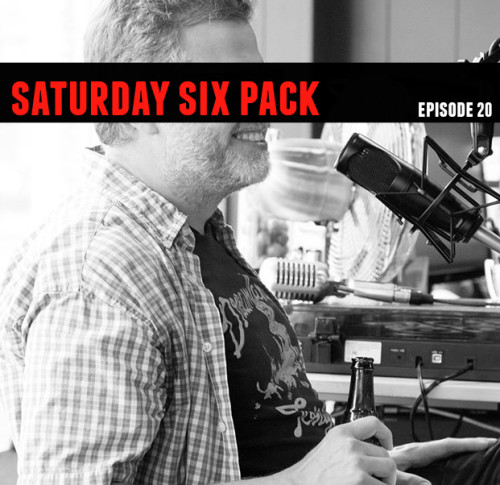
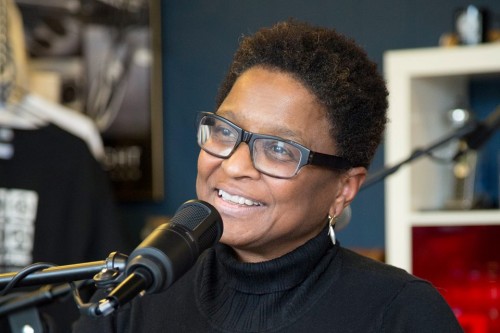
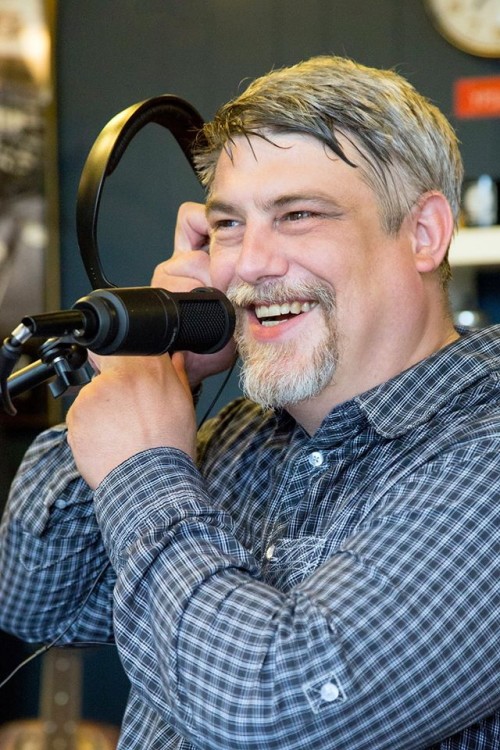
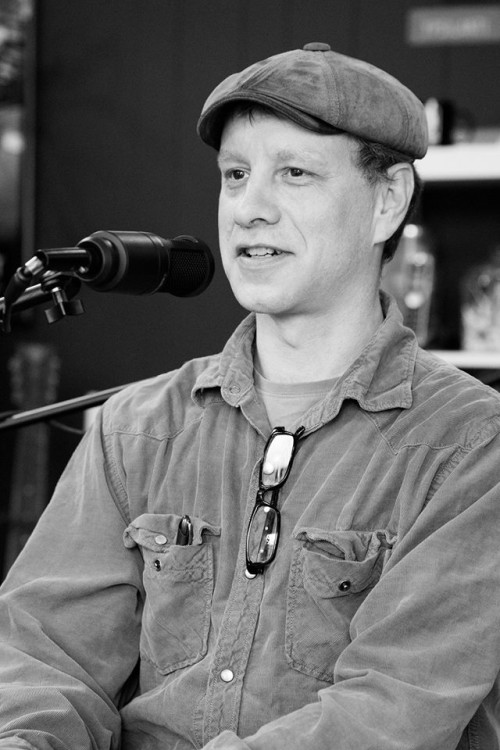
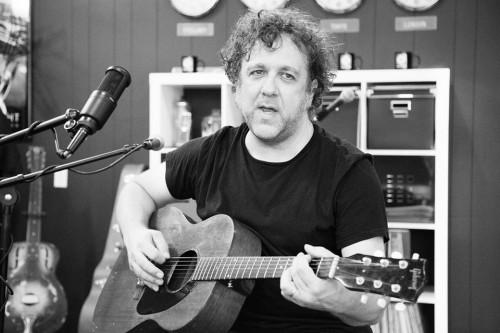











6 Comments
My hope is that Jackman and company survive the new administration at the Metro Times. I have not heard good things about their new publisher John Badanjek.
From the Zine Wiki page on Pathetic Life:
“In #25, Doug wrote about how people had begun to approach him on the street or at his table on Telegraph, asking if he was Pathetic Doug. Though he welcomed the correspondence he received from his zine, Doug said he saw these encounters as an invasion of his privacy, and he vowed to stop writing so much about his day-to-day life. This proved to be the final issue of the zine. Around the same time he stopped publishing Pathetic Life, Doug started Zine World, a review zine.”
I really hope you have Keta Cowan come back to talk about Synod’s hoarding program. I have *cough* ‘a friend’ who has that problem in a minor way but you know…more information, more better.
As much as I get down on Ann Arbor, Washtenaw County is pretty awesome. Thank you Keta Cowan.
Michael Jackman;
Welp, after 15 years of hard work, several awards, excellent performance reviews, and even a stint as interim editor, I have been let go from Metro Times. I didn’t want to go, my colleagues didn’t want it, my boss, Lee, didn’t want it, and the local publisher didn’t either. Officially, it’s “just business” — the money isn’t there to fund the position. I’ve seen it happen to other talented, award-winning writers like Bill Holdship and Brian Smith. This is how the alt-weekly world is. There are no buyouts for us. We give it our all and we often get the gate. Oh, well. At least I hope I managed to make some small difference with that chunk of my life. Thanks for reading along. This is not, however, the last word on Michael Jackman.
Is this episode available anywhere? I worked with Doug Holland on Pathetic Life and Zine World, and corresponded occasionally with Mike Jackman as well.
One Trackback
[…] MARK: You mentioned Michael Jackman earlier. I know him. I haven’t seen him in years, but he’s near me, in Detroit. I was doing a small radio show for a while, and he was a guest of mine. I’m not sure where the audio is — I’ll have to find it and give it a listen — but here’s an excerpt from the notes I posted after the fact. […]